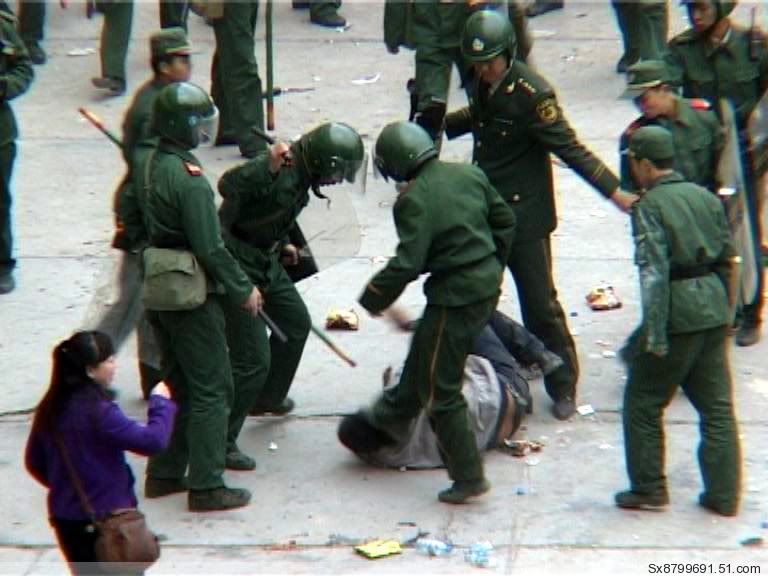Monday, October 27, 2014
China strives incoherently for the ‘socialist rule of law’
The Communist party attempt to introduce legal redress is an impossible feat

China’s leaders are attempting to bring the country’s relationship with law into balance.

China’s leaders are attempting to bring the country’s relationship with law into balance.
The Chinese Communist party will remain supremely powerful, but the Chinese people are to have the right to seek redress through the courts.
How is this balancing act to be accomplished?
In truth, it is an impossible feat.
The “socialist rule of law”, as the party calls it, is a political oxymoron.
At last week’s Fourth Plenum, the party elite gave its blessing to what was billed as the most comprehensive overhaul of the legal system since China opened its economy to international trade. The idea was to give a new sheen of legitimacy to a system tarnished by corruption and government dysfunction.
China’s legal system has indeed made great strides.
At last week’s Fourth Plenum, the party elite gave its blessing to what was billed as the most comprehensive overhaul of the legal system since China opened its economy to international trade. The idea was to give a new sheen of legitimacy to a system tarnished by corruption and government dysfunction.
China’s legal system has indeed made great strides.
It used to be prohibitively difficult for citizens to challenge the actions of government; now they can. In July the Supreme People’s Court announced extensive plans to expand and retool the judiciary, including the separation of local governments from the judicial bodies on which they have long had a pernicious influence.
These reforms are worthy enough, but they fail to address the central question of how China can reconcile authoritarianism with the rule of law.
These reforms are worthy enough, but they fail to address the central question of how China can reconcile authoritarianism with the rule of law.
At the Fourth Plenum the party leadership tried to give a definitive answer.
Only if the “rule of law is vigorously enforced under party leadership”, they wrote in a communiqué released after the session, can “people be the masters of their own affairs”.
In other words, the state is a reflection of the will of the people, and the law will better serve citizens when it is seen as an instrument of the state.
We have heard all of this before.
We have heard all of this before.
China is actually more democratic than the west, its leaders say.
Its political system pursues the collective good instead of allowing rampant individualism of a kind that thwarts everyone.
Its approach to development is more effective because reforms will never go further than what people are ready for.
If China is ever to be a country ruled by laws, these arguments need to be abandoned.
Litigation is, after all, an inherently individualistic enterprise.
Litigation is, after all, an inherently individualistic enterprise.
The party wants citizens to gain a clearer sense of their rights and assert them against the government so as to improve its performance.
And it is starting to have its way.
Since the advent of administrative litigation in 1990, the number of suits against the government has increased tenfold; it is now in the low six figures.
For a time, judges would often pressure plaintiffs to withdraw their cases or settle them out of court.
But Zhou Qiang, president of the Supreme People’s Court, said in March that laws should be revised to make it easier for citizens to bring suit.
Despite this progress, however, due process is often viewed in China as a legalistic and unproductive encumbrance.
Despite this progress, however, due process is often viewed in China as a legalistic and unproductive encumbrance.
So is the idea of adhering strictly to the law.
Reversing this perspective would entail a fundamental and uncomfortable adjustment.
The traditional Chinese approach to resolving disputes is based on ad hoc settlements between parties.
The traditional Chinese approach to resolving disputes is based on ad hoc settlements between parties.
Wang Liming, vice-president of Renmin University of China, told the People’s Daily this month that Chinese people still need to “develop public awareness of the law”.
The party has promised a programme of public education.
But as televised confessions and the extra-judicial handling of China’s corrupt officials has shown,the educators must first master the rule of law themselves.
But as televised confessions and the extra-judicial handling of China’s corrupt officials has shown,the educators must first master the rule of law themselves.
They need to recognise the difference between vengeance and justice.
Letting “the popular masses feel justice in every court case”, as the party elite pledged last week, is not likely to do the trick.
The “socialist rule of law” is an incoherent ambition.
The “socialist rule of law” is an incoherent ambition.
It is a sign of a party that clings to "Chinese characteristics" even when it is embracing western ideas.
China should pursue the rule of law, and leave the “socialist” out of it.
No comments:
Post a Comment
Comments always welcome!